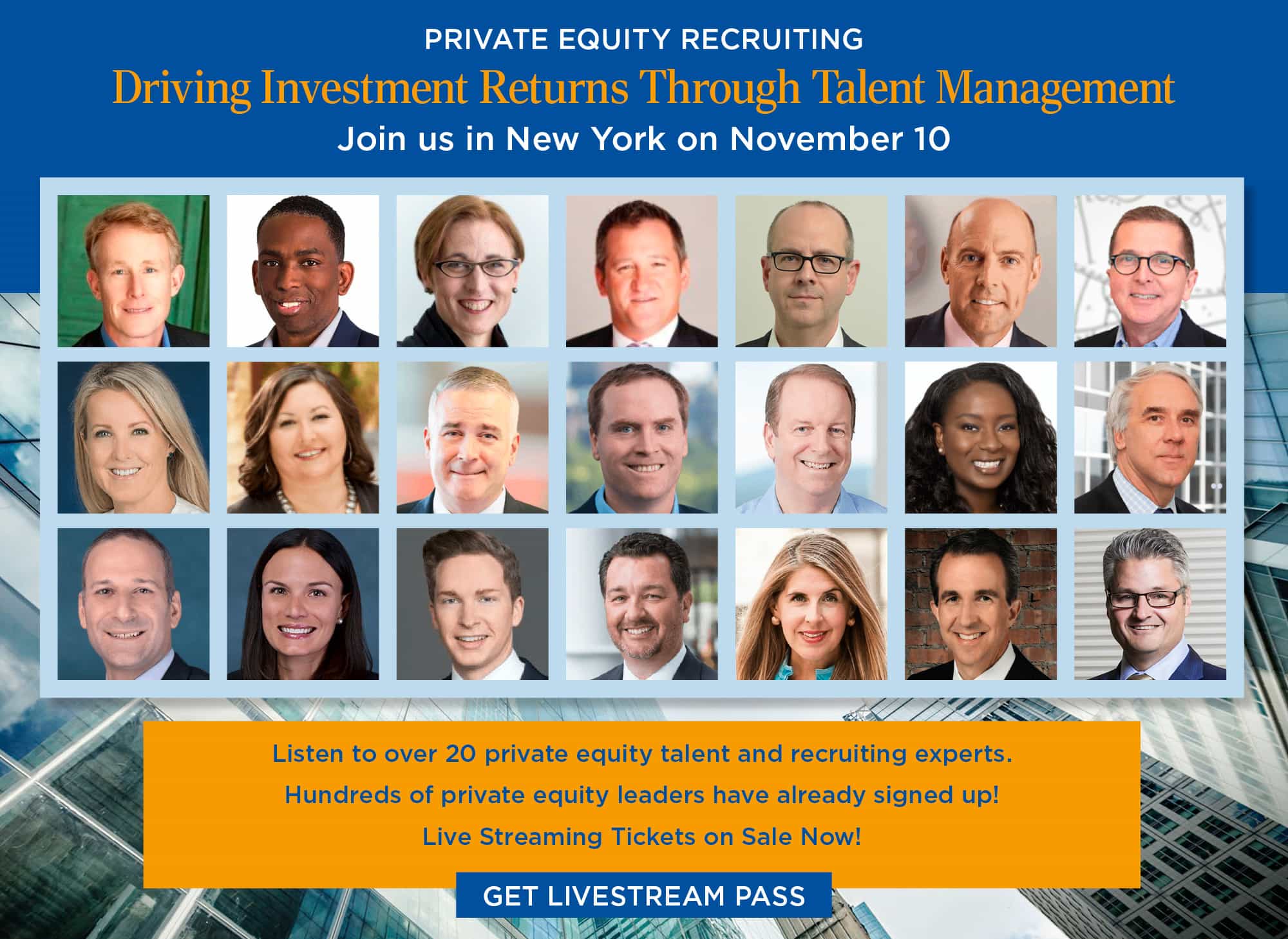Pandemic’s Lingering Effect on Recruiters: Client Activity Down, Interim Hiring Up

June 23, 2020 – The COVID-19 pandemic has had a big impact on every business sector, executive recruiting included, costing organizations billions of dollars in lost revenue. Goldman Sachs estimates that economic growth around the world will be zero in 2020 thanks to the virus. To many, even that seems grossly underestimated. But the coronavirus is causing far more than just financial damage. Leaders are scrambling to secure supplies, trying to keep fearful employees motivated to work and, in some cases, maintaining bold strategic plans that have been years in the making from falling apart.
NPAworldwide, a global recruitment network, recently released the results of a special COVID-19 survey documenting the pandemic’s effects across the sector. The survey was completed by owners and managers of independent recruitment firms that are members of the NPAworldwide worldwide network. Participants were asked to document business conditions related to their business, their clients’ businesses, and their exposure to the recruitment market as a whole. The results are a good indicator of what recruitment firms across the spectrum might be experiencing on a global basis.
“The COVID-19 survey sought to understand the immediate impact of the pandemic on business conditions at a high level,” said Dave Nerz, president of NPAworldwide. “The purpose was to understand what members were seeing and feeling to see if there was specific action the network could take to support conditions.”
The survey was completed with a global perspective and was not segmented into a region-by-region or unique to each country data sets, he said. Sixty-one percent of those responding to the survey were solo practitioners or two-person offices, while nearly 18 percent were offices of six or more.
Key Findings
- Things are difficult and required a reduction in staff.Sixteen percent of respondents had cut one or more staff members within six weeks of the beginnings of the pandemic, specifically the sheltering in place rules issued by states and countries.
- Client activity has dropped dramatically for most.Seventeen percent of respondents found that client activity dropped off completely with no recruiting activity being reported. Only eight percent found recruitment activity to be between 75 to 100 percent of normal. The largest group reported activity at about 25 percent or less than normal.
- Activity and hiring still happening, but some sectors are more active than others. Reports from the engineering/operations/manufacturing sectors showed the most activity, with 42 percent of respondents pointing out active searches and hires. Following that was the technology/IT sector with 33 percent reporting activity, healthcare with 27 percent, sales/marketing/admin with 22 percent, accounting/finance with 20 percent and biomedical/pharmaceuticals with seventeen percent. As a reminder, the survey respondents were likely focused on just one or two of these sectors. The fact that activity is present is more important than the percentages, comparatively, said NPAworldwide.
- Temporary hiring.Eighteen percent of respondents found that client use of temporary hiring was increasing or there was an increased interest in such hires. As business digs out of a downturn like this, it is typical of temporary hires to increase dramatically with temp-to-perm becoming a more common path to adding staff, NPAworldwide said.
- Client workforce reductions.The most common situation reported was client reductions in workforce of more than 75 percent of workers furloughed or cut. This was noted by 57 percent of the respondents. The next most common condition was a less than 25 percent reduction in staffing levels, followed by no reductions reported by 30 percent and 13 percent of the survey participants, respectively
 The COVID-19 Impact on Executive Search
The COVID-19 Impact on Executive Search
The COVID-19 pandemic has had an impact on every business sector, executive recruiting included, costing organizations billions of dollars in lost revenue. Goldman Sachs estimates that economic growth around the world will be zero in 2020 thanks to the virus. To many, even that seems grossly underestimated. But the coronavirus is causing far more than just financial damage. Leaders are scrambling to secure supplies, trying to keep fearful employees motivated to work and, in some cases, maintaining bold strategic plans that have been years in the making from falling apart.
Over the past two weeks, recruiting software provider Thrive interviewed dozens of leaders, CEOs, founders and managing partners from top executive search firms. “They candidly shared how COVID-19 and the resulting social and economic impact will affect the executive search sector,” said J. Reed Flesher, founder and president of Thrive, which develops software for recruiters and talent executives.
- Applications for government support.Nearly 70 percent of the respondents to the survey have applied for one form or another of government backed support. These levels and types of support vary from country to country and are not available in all locations surveyed, so 70 percent is a large majority, said NPAworldwide.
- Approved for government support.As of the survey completion date, only 22 percent were certain of their approval for the support requested or applied for. Fifty-percent did not yet know, while just five percent had received firm rejections.
“While things have changed dramatically and quickly, our COVID-19 survey shows there is still activity in the recruitment industry,” said Mr. Nerz. “The industry will certainly lose many recruiters, as well as a large number of firms that were not properly funded, recent start-ups or firms that were too dependent on hard-hit sectors.”
 Finding Opportunity in the Face of a Crisis
Finding Opportunity in the Face of a Crisis
If there’s anything we’ve learned from crises since the Great Depression, it’s that companies that choose to transform and innovate are those that will continue to thrive and grow. A study by the Boston Consulting Group (BCG) showed that companies that invested significantly in innovation delivered four percent higher shareholder value when the economy recovered from 2007 to 2012.
“While the natural response of every leader is to take rapid action that’s crucial for survival as well as defend the financial position of the business, each crisis is also an opportunity to occupy new positions and build new advantages,” said Raj Kumar Paramanathan, managing partner, IRC Malaysia & Thailand, said in a new report. “This transformative approach requires leaders to conduct a strategic review of competitors, customers and regulatory issues, reorient investments towards newly identified opportunities and build resilience through the reinvention of the operating model.”
“Our members rely on each other at times like this and have weathered previous downturns of various causes since 1956,” Mr. Nerz said. “We find that members of our network are more likely to survive and thrive than the industry as a whole because of shared jobs, candidates and a peer-to-peer support network. We are all looking forward to a return to more normal conditions on the other side of the difficult months still ahead.”
Dave Nerz on Networking During a Pandemic
“In many cases recruiters are likely to be more relaxed and approachable during this time of pandemic,” said Mr. Nerz. “While not universally true, the quantity of jobs recruiters are trying to fill is down, so they have more time to learn and talk to candidates and hiring managers. As evidence of this, our NPAworldwide network has seen a fourfold increase in attendance for training webinars,” he said. “Some of this is due to reduced industry activity and some is due to increased available hours based on reduced work assignments, the productivity of working from home and even reduced commutes.”
Related: 10 Tips for Networking with Executive Recruiters During COVID-19
When engaging with a recruiter to network, job seekers should be realistic. “Recruiters get paid a fee to place top talent in jobs where they are certain a candidate can do well,” said Mr. Nerz. “Recruiters are not interested in moving accountants into sales management roles or taking administrators and presenting them for leadership roles.”
 Executive Recruiters Roll Up Their Sleeves as COVID-19 Crisis Unfolds
Executive Recruiters Roll Up Their Sleeves as COVID-19 Crisis Unfolds
The COVID-19 pandemic has had an impact on every business sector, executive recruiting included. Kenneth Vancini of Innova International brings us the latest thinking after convening recent conference calls with 23 leaders from search firms across the country. Also, we have the initial results from the latest Hunt Scanlon Media ‘Pulse Survey’ of leading U.S. recruiters and fresh insight from Thrive. It’s a full docket!
Small steps forward are likely and possible but the more your existing experience matches the new job, the more likely a recruiter can help you. “Be honest about what you want and do not want,” said Mr. Nerz. “Be honest about places you would relocate and places you will never consider. If you have a partner with veto power on your next career move, get that on the table early. The more info you can share about your must haves, wishes and realities, the better a recruiter can work on your behalf to deliver.”
“The pandemic may create some comfort and ease for connection and conversation that did not exist prior to our current reality” said Mr. Nerz. “For the most part, things are not different; however, you may both be able to talk more freely as neither of you are in cubicles with co-workers listening or likely to interrupt the conversation. When engaging with a recruiter to network, be realistic. Recruiters get paid a fee to place top talent in jobs where they are certain a candidate can do well. Recruiters are not interested in moving accountants into sales management roles or taking administrators and presenting them for leadership roles.”
Related: Companies Planning Big Comeback Post-Pandemic Crisis
Contributed by Scott A. Scanlon, Editor-in-Chief; Dale M. Zupsansky, Managing Editor; and Stephen Sawicki, Managing Editor – Hunt Scanlon Media












